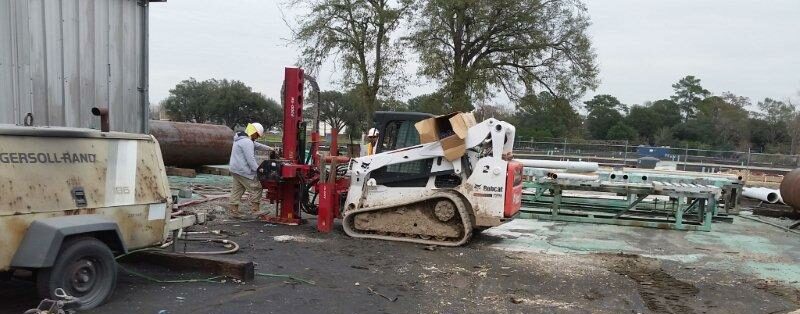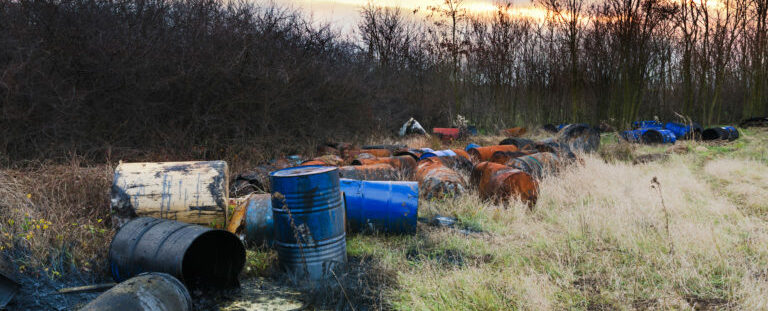Voluntary Cleanup Program
The main area of focus today will be on the Voluntary Cleanup Program. The VCP addresses sites that have environmental issues that may complicate real estate transactions and/or redevelopment. This program provides technical, administrative, and legal incentives that help the cleanup of these contaminated areas in our state. Staff of the Texas Commission on Environmental Quality (TCEQ) and the Railroad Commission of Texas (RRC) work under a Memorandum of Understanding (MOU) between the two agencies for contaminated site cleanup under the Voluntary Cleanup Programs (VCP) administered by each entity.
Railroad Commission of Texas (RRC)
RRC’s Voluntary Cleanup Program provides technical assistance in the investigation and remediation activities at oil & gas related property. Staff’s oversight ensures that all contamination on site is appropriately assessed and remediated to standards outlined in the Texas Risk Reduction Program per the applicant's desired closure strategy for the property. When cleanup is completed, the RRC will issue a Certificate of Completion that embodies the release of liability to the state for the applicant. Staff of the Voluntary Cleanup Program encourage all parties interested in the program to consider applying.
Similar to the Brownfields Response Program, the RRC’s Voluntary Cleanup Program was created in 2002 to provide an additional incentive to landowners to remediate properties contaminated by oil and gas activities that may otherwise hamper future real estate transactions or redevelopment projects. The goal of the program is to restore these properties and make them economically productive or beneficial to their local communities.
Texas Commission on Environmental Quality (TCEQ)
The TCEQ VCP provides administrative, technical, and legal incentives to encourage the cleanup of contaminated industrial, manufacturing, and other sites in Texas. The intention of TRRP is to focus on releases that threaten or affect water resources (groundwater, surface water/sediment) and/or those releases that necessitate a decontamination or control remedy. This document sets forth the procedure to help persons make this determination. The TCEQ Guidance Document “ Determining Which Releases are Subject to TRRP” may be found at the following link: https://www.tceq.texas.gov/assets/public/remediation/trrp/releasesTRRPrev.pdf
A certificate of completion will be issued by the TCEQ which states that “all non-responsible parties are released from all liability to the state for cleanup of areas covered by the certificate”. After all requirements of the VCP have been completed and final certificate is given.
- Conditional Certificate: This is an example of the certificate that certifies an applicant has demonstrated that long-term response actions (e.g. engineering controls, remediation systems, or post-closure institutional controls) meet performance standards and are being implemented under requirements established in the Texas Voluntary Cleanup Program.
- Final Certificate: This is an example of the certificate from the TCEQ that certifies an applicant has implemented or completed all requirements of the Texas Voluntary Cleanup Agreement.
- Final Certificate with MSD: This is an example of the final certificate reliant upon a Municipal Settings Designation certificate.
Contact us today for more information related to your VCP project and/or other regulatory framework for assessment, corrective action, and regulatory agency reporting to the TCEQ or RRC.
Our Project Spotlight

The project spotlight for this month is for a site that was impacted with chlorinated solvents in groundwater beneath this from an off-site source. The TCEQ Voluntary Cleanup Program (VCP) required a comprehensive assessment of the soil and groundwater associated with potential on-site as well as off-site sources of contamination for the Owner to qualify for a VCP Certificate of Completion. CRG Texas provided the necessary environmental consulting required by the TCEQ to meet this objective and receive a Final Certificate of Completion thus allowing the site to be sold to a prospective purchaser.

